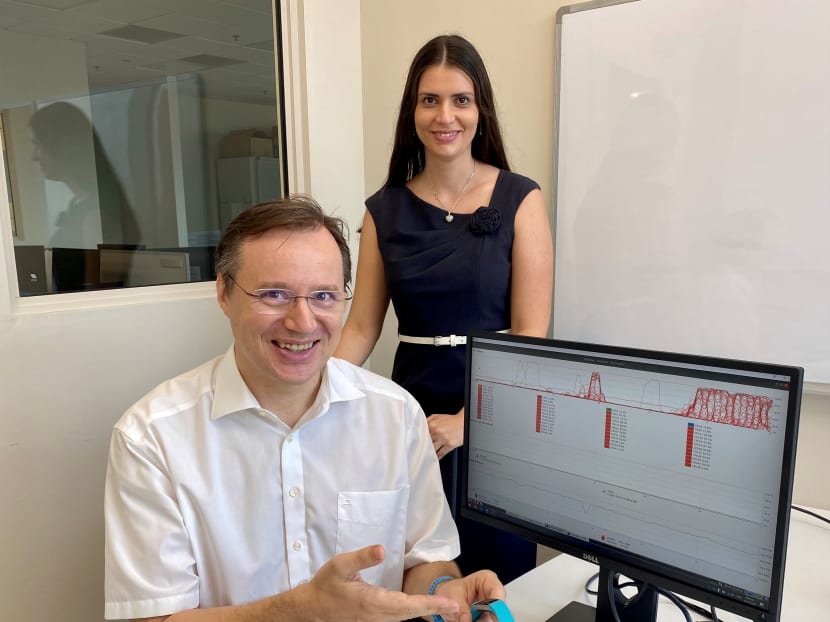NTU researchers develop way to detect depression risk using data from wearable technology
SINGAPORE — Researchers from Nanyang Technological University (NTU) have developed a way to analyse data from wearable technology such as Fitbit and other smartwatches, to help detect people who have an increased risk of depression.

Professor Josip Car (left), director of the Centre for Population Health Sciences at NTU’s Lee Kong Chian School of Medicine, and senior research fellow Iva Bojic, were part of a team that developed a way to detect depression risk through smartwatch data.
SINGAPORE — Researchers from Nanyang Technological University (NTU) have developed a way to analyse data from wearable technology such as Fitbit and other smartwatches, to help detect people who have an increased risk of depression.
Using indicators such as heart rate and sleeping patterns, the system has proven to have a 80 per cent accuracy rate of detecting individuals with a high risk of depression.
Work on the programme, called the Ycogni model, started in October 2019 and involved a study of 290 working adults in Singapore.
Participants wore a Fitbit Charge 2 device for two weeks and completed two health surveys that screened for depression — once at the start and the other at the end of the study.
They were instructed to wear the digital tracker at all times and to remove them only when taking a shower or to charge the device.
The data that was extracted and studied included the number of steps taken, heart rate, energy expended and sleep patterns.
Analysis of the data found the following associations between certain indicators and mental health:
- Less regular sleeping patterns, such as varying waking times and bedtimes were associated with higher tendency of depressive symptoms
- Healthy people demonstrated a greater regularity in the timings when they woke up and went to sleep.
- Those who had more varied heart rates between 2am and 4am, and between 4am and 6am were more prone to severe depressive symptoms
The team of four researchers published their findings in November last year.
Asked at a press conference on Monday (Jan 24) when the detection system would be released for use, Associate Professor Georgios Christopoulos from NTU’s Nanyang Business School said that his team was "thinking about how to apply this into practice" because such data can be "sensitive and private".
The team is thinking of linking their programme to a smartphone application that users may download to track the data collected from their wearable technology such as Fitbit and Apple Watch.
Users would be able to access the data collected and view their depression risk first, before being prompted to share this data with healthcare professionals.
This is to prevent users’ data from being distributed without their consent.
Professor Josip Car from NTU’s Lee Kong Chian School of Medicine said: “That’s our early thinking. As we develop the programme further, we also want to do further research on what is most acceptable to people who use it, recognising that at times, mental health can be stigmatising.”
The professor is director of the Centre for Population Health Sciences at NTU’s Lee Kong Chian School of Medicine and he was also part of the research team.
The team is also working on including other indicators such as skin temperature and smartphone usage into the data set.
Assoc Prof Christopoulos said: “This is a study that, we hope, can set up the basis for using wearable technology to help individuals, researchers, mental health practitioners and policy makers to improve mental well-being.”











